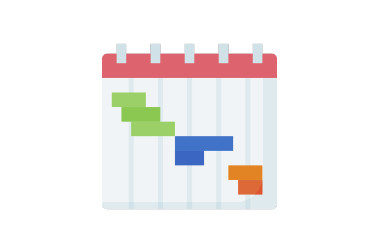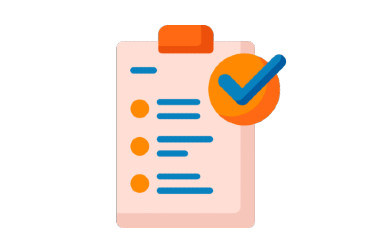
Do you have an idea to improve outcomes in your practice?
Do you need time to explore and understand an important topic?
Would you benefit from a mentor to help develop a solution for a clinical challenge?
The UBC Department of Occupational Science & Occupational Therapy (OSOT) Mentored Clinician Partnership Program Fund is designed to allow occupational therapists the time to work on innovative projects with the aim to improve client-centred outcomes.
With the support of a UBC OSOT faculty mentor, apply for up to $5,000 for release time and expenses to explore an idea, develop a solution, or understand an important topic that will benefit your clinical practice.
Perhaps you have seen a new tool and would like to assess whether it would improve client outcomes, or you’d like to get up to speed with new technologies and reflect on their potential use in your context. You might want to review current literature on a particular topic or trial an idea, or even use the time to design a solution for a specific issue.
Applicants must be occupational therapists working for Vancouver Coastal Health or Fraser Health.
Important dates for the 2026 program
Application:
- Applications open: October 6, 2025
- Latest date to reach out and secure a UBC OSOT mentor: January 28, 2026
- Due date for submissions: February 28, 2026
- Applicants will be notified of the competition outcome by April 15, 2026
Project completion:
- Projects should be complete by May 15, 2027
- Short final report due by July 15, 2027

Your idea
Your project should be easily achievable within a year. This program is designed for small-scale projects and exploratory work, and the emphasis of the funding should be on releasing your time to develop your ideas, enhance understanding of a topic or used to find a solution to an issue.
Previous projects include time to create an area-specific literature review to build knowledge in a team, and time to research and develop a presentation to explore the use of new virtual reality technologies in clinical practice.
Another example might be studying and understanding more about Truth & Reconciliation and reflecting on how to embed culturally safe practices in your work.
Previously funded projects
3D printing technology
Systematic Literature Review: The use of 3D printing technology in Occupational Therapy practice (2021-22)
Rosa Jafari is an occupational therapist in the VCH Movement Disorders Clinic, which works to develop OT interventions for populations with Parkinson’s disease, Essential Tremor, Dystonia, and Ataxia. With the mentorship of Department of Occupational Science & Occupational Therapy faculty member Professor Liisa Holsti, Rosa applied for the Mentored Clinician Partnership Program in order to write a literature review on the requirements and identified necessities, as well as the barriers, of using 3D printing technology within OT practice (such as in customizing a novel object or affordably replicating a commercially available object).
Virtual Reality (VR)
Virtual Reality: Advancing Burn Care & Functional Outcomes (2021-22)
Dayna Jones is an occupational therapist within the Burns Unit at Vancouver General Hospital, who applied to the Mentored Clinician Partnership Program in order to generate an understanding of what settings are most appropriate for Virtual Reality (VR) in burn care, for whom it is most appropriate, and to develop strategies for the optimal use of VR technology in vulnerable populations, and to explore the staff complement and skill required to use and maintain this technology. With the mentorship of Department of Occupational Science & Occupational Therapy faculty member, Professor Bill Miller, Dayna will create a written report to VCH stakeholders, and will potentially apply to a VCHRI grant in the future to build on her initial research and support practice change.
Skin tone bias
Is there a skin tone bias in Vancouver Coastal Health long term care homes when identifying early stages of pressure injury between people of darker and lighter skin tones? (2022-23)
Jill Wong is a Clinical Resource Therapist as part of the multi-disciplinary Vancouver Coastal Health Long Term Care and Assisted Living Professional Practice Team. She applied to the Mentored Clinician Partnership Program and with the support of UBC Department of Occupational Science & Occupational Therapy faculty member, Professor Bill Miller, she intends to research the possibility of skin tone bias when identifying early stages of pressure injury in long term care homes. Her findings will be summarized and presented back to her team as a basis for developing education and intervention strategies to improve patient care and health outcomes.
Individualized Community Program (ICP)
Does an Individualized Community Program (ICP) improve the function of community-dwelling older adults? A feasibility study (2022-23)
Simon Gangatharam is an Occupational Therapist at Abbotsford Home Health within Fraser Health. He applied to the Mentored Clinician Partnership Program in order to conduct a 6-8 week feasibility study into the effects of an Individualized Community Program (ICP) on reducing functional decline in older adults. With the mentorship of Department of Occupational Science & Occupational Therapy faculty member, Professor Ben Mortenson, Simon plans to use the study findings to advocate for the ICP program in his facility, with the intention of reducing hospitalization and improving his clients’ abilities to participate in occupations.
Asian perspectives, experiences and positionality
Understanding Asian perspectives, experiences and positionality within occupational therapy and occupational science: A scoping review (2023-24)
Alissa Low is an Occupational Therapist in the area of Mental Health Supported Housing/Goldcorp Centre for Mental Health with Vancouver Coastal Health. She applied to the Mentored Clinician Partnership Program for funding and mentorship to create a scoping review of occupational science and occupational therapy literature to assess the representation of Asian occupational therapists, Asian clients, and explore the racial, ethnic, and cultural nuances of an Asian identity within occupational therapy. Alissa’s mentors are faculty members Professor of Teaching Michael Lee and Associate Professor of Teaching Katie Lee Bunting.

The Mentored Clinician Partnership Program gave me a supportive opportunity to experiment with the research process on a clinical topic that is important to me, my clients, and Vancouver Coastal Health. I felt supported by UBC OSOT and VCH throughout this past year and I feel very fortunate to have been a recipient of this fund.

Finding your mentor
A mentor from the UBC Department of Occupational Science & Occupational Therapy (OSOT) is required as part of the project to support your idea and development. OSOT has a broad faculty covering many research interests and specialisms.
Before the mentorship due date, contact us (using the form below) with a couple of sentences about your intended project, and we will introduce you to the member of faculty who is best placed to support you. Meet with your mentor to discuss and refine your ideas, before you put together your project application.
If your application is successful, you will be required to meet with your mentor at least once for a formal check-in, again at 6 months after the notification of your funding, as well as for more informal meetings and discussions as you progress through your project.
Your mentor is there to support you, and offer guidance to help develop your ideas. Finding a mentor sooner will strengthen your idea (and your application!)

Talking with your manager & planning your project
As this program is designed to release your time, it is important to discuss the funding opportunity and the practical support needed with your manager. Arrangements will need to be made to cover the time you intend to spend on the project, which may take some time to organize.
Prepare your timeline in conjunction with your manager. You may want to do the project in one week, for example, or one day a week for a period of time if that works better.
Your timeline should take into account:
- A project start date within 6 months of being awarded.
- A formal check-in with your UBC OSOT mentor 6 months after being awarded.
- A project scope that will take no longer than 12 months to complete.
- Submission of a final report within 3 months of project completion.
Your budget is likely to be based on the cost of providing release time and covering your position whilst you are working on the project.
We anticipate the majority of your budget to be used in this way, with perhaps a maximum of 15-20% on other expenses (if needed).

Preparing & submitting your application
The Mentored Clinician Partnership Program Fund is designed to allow occupational therapists the time to work on small innovative research projects to complement their practice and improve client-centred outcomes.
Key steps to help prepare your application:
- Start with some initials ideas about what you’d like to do
- Discuss with your manager
- Express interest and find a mentor
- Develop your idea further with your mentor
- Put together a timeline and complete the application form
- Sign your application form
- Ask your manager to review and sign your application form
- Submit
Download and complete the MCPP application form (2026), ensure you and your manager review and sign it, and make sure to submit before the due date through the online portal below.
Submit your application
Contact us
Eligibility & terms
- Applications are accepted annually.
- Applicants may apply for funding of up to $5,000.
- Each year we will award funding to two successful applicants.
- Applicants must be occupational therapists working for Vancouver Coastal Health or Fraser Health.
- Projects must be completed before the due date.
- Applicants must secure the support of a UBC OSOT mentor prior to the mentoring due date (see Important Dates, above).
- We anticipate the majority of the applicant fund to be used to provide release time from the applicant’s position.
- Health authorities will invoice UBC OSOT for the coverage of the applicant’s position.
- The agreed applicant expenses will be paid directly to the applicant.
- Applicants should start their projects within 6 months of notification of their application success.
- Applicants are required to submit a final report within 3 months of project completion.
- Applicants may only submit one application per competition.
- Unsuccessful applicants are warmly welcomed to reapply in subsequent years.
- New: Please note that projects funded as part of the Mentored Clinician Partnership Program will not be eligible as a research project option for the Department of Occupational Science & Occupational Therapy course ‘OSOT 547’ during the year of funding. Projects can, however, be extended and used in subsequent years, once the funded year is complete.
Images: Notebook image from @daiangan/Unsplash; idea icon from dDara/Flaticon; speech, schedule and application icons from Freepik/Flaticon.